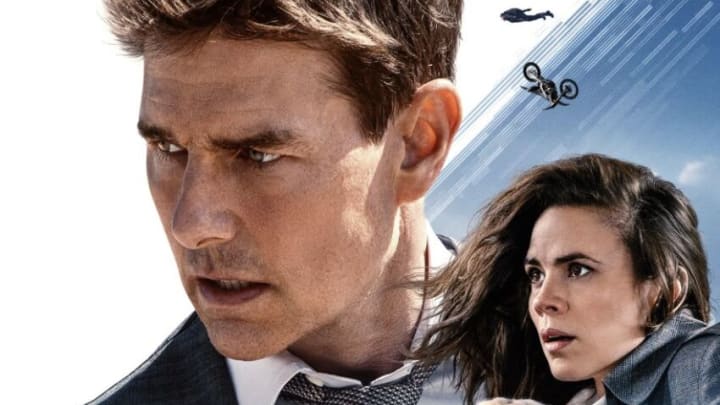This year, we’ve all heard a lot about generative AI, which allows people to produce long reams of coherent text or passably realistic images by doing nothing more than typing a few words of suggestion. We’ve also seen AI voice clones, where people can realistically mimic someone else’s voice and then get them to say whatever they want.
The emergence of this new technology poses all sorts of new risks, many of which we probably haven’t thought of yet. Could AI run people out of their jobs? Might it even result in a Skynet scenario where we’re all on the run from killer robots? Increasingly, governments are stepping in to try and make sure that the technology advances in a way that isn’t going to throw everything into chaos. Earlier this week, President Joe Biden unveiled an executive order that puts some regulations in place regarding the technology. We’ll likely see these further develop as time goes on.
According to the Associated Press, Biden was as impressed and alarmed as anyone at the ability of AI to generate convincing images of him (and his dog, apparently). He saw the potential for people to use this technology for misinformation and acted…with a little help from super-spy Ethan Hunt (Tom Cruise), from the Mission:Impossible movies.
Apparently, one weekend at Camp David, Biden and deputy White House chief of staff Bruce Reed watched this year’s Mission: Impossible — Dead Reckoning Part One, where Hunt and crew fight a sentient AI known as “the Entity” that sinks a submarine and kills its crew in the opening minutes of the movie. After that, there was no going back. “If he hadn’t already been concerned about what could go wrong with AI before that movie, he saw plenty more to worry about,” said Reed.
Would Biden have still moved forward with plans to regular AI had he not watched the movie? I’m going to guess yes, but all the same: keep up the good work, Mr. Cruise.
Nicolas Cage calls generative AI “inhumane”
So President Biden has an opinion on generative AI. What about a real celebrity, like Nicolas Cage? Speaking to Yahoo Entertainment, he did not sound enthusiastic:
"AI is a nightmare to me. It’s inhumane. You can’t get more inhumane than artificial intelligence. But I don’t think it [was] AI [in The Flash]. I just think that they did something with it, and again, it’s out of my control. I literally went to shoot a scene for maybe an hour in the suit, looking at the destruction of a universe and trying to convey the feelings of loss and sadness and terror in my eyes. That’s all I did."
Cage is referring here to a brief moment in The Flash movie where he shows up as Superman, whom he was going to play back in an aborted Superman movie back in 1990s. “It was CGI, OK, so that they could de-age me, and I’m fighting a spider. I didn’t do any of that, so I don’t know what happened there,” he said.
I imagine that Cage’s cameo in the movie probably used some kind of generative AI technology, even if that’s not what it was being called at the time, but I dunno. The point is that he’s against AI being used to replace actors, and he’s far from the only person to think that way.
Scarlett Johansson sues AI company over using her likeness in ad
There have been a number of incidents lately where companies have used AI recreations of celebrities to help sell products…without getting the permission of those celebrities. For instance, an AI version of Tom Hanks showed up in an ad for dental insurance, much to Hanks’ displeasure.
Hanks didn’t go so far as to pursue legal action, so far as we know. Not so for Scarlett Johansson, who is suing over an ad put out by Lisa AI: 90s Yearbook & Avatar, which is an app that allows people to post altered photos of themselves in front of a blue or gray background. The offending ad begins with actual footage of Johannson from behind the scenes of the movie Black Widow, which I imagine was also used without permission. “What’s up, guys? It’s Scarlett, and I want you to come with me,” she says before we transition into an AI version of her. “It’s not limited to avatars only,” continues AI Scarlett. “You can also create images with texts and even your AI videos. I think you shouldn’t miss it.”
The ad comes with a disclaimer: “Images produced by Lisa AI. It has nothing to do with this person.” This person? Oh, now you’ve done it. “We do not take these things lightly,” Johansson’s attorney, Kevin Yorn, told Variety. “Per our usual course of action in these circumstances, we will deal with it with all legal remedies that we will have.”
The ad has now been scrubbed from the internet, but Scarlett Johansson will have satisfaction. Her’s is one of several cases over generative AI I imagine we’ll see in the coming years. A Song of Ice and Fire author George R.R. Martin is part of another one, this one focusing on how AI is being used to steal the work of writers, or at least that’s the claim Martin and the other plaintiffs will advance. The courts are going to be busy.
To stay up to date on everything fantasy, science fiction, and WiC, follow our all-encompassing Facebook page and sign up for our exclusive newsletter.
Get HBO, Starz, Showtime and MORE for FREE with a no-risk, 7-day free trial of Amazon Channels
h/t The A.V. Club
